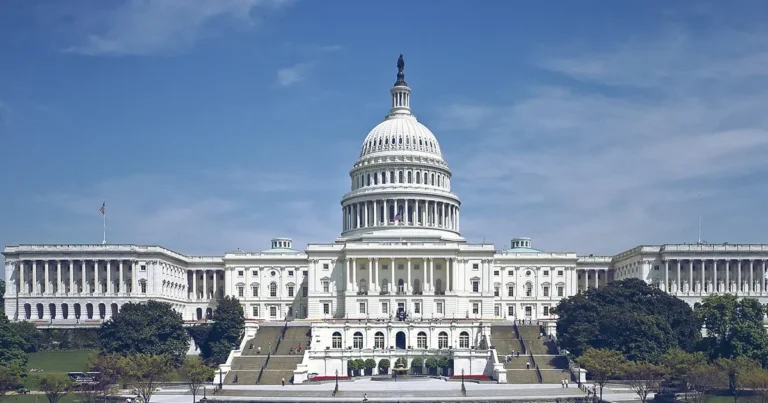12-4-2025 – A fresh legislative proposal has emerged from the U.S. Senate, aiming to slap emissions-based charges on data centres powering blockchain networks and artificial intelligence operations. Dubbed the Clean Cloud Act, this initiative, championed by Democratic Senators John Fetterman and Sheldon Whitehouse, seeks to rein in the ballooning energy demands of cryptocurrency mining and AI computation, which are increasingly straining the planet’s resources.
The legislation mandates that the Environmental Protection Agency set a rigorous emissions benchmark for facilities with IT power consumption exceeding 100 kilowatts. This standard would hinge on the emissions profile of regional electricity grids, with an ambitious target of slashing emissions by 11% each year. Data centres failing to comply would face a starting fine of $20 per metric ton of CO₂-equivalent emissions, a penalty that would rise annually in line with inflation plus an additional $10.
The urgency of the proposal is underscored by stark projections: data centres could command as much as 12% of U.S. electricity consumption by 2028. Globally, their emissions might soar to 2.5 billion metric tons by 2030, according to estimates from Morgan Stanley referenced in the bill. A spokesperson for the Senate Committee on Environment and Public Works highlighted the challenge, noting that the explosive growth in power demand from crypto mining and data centres is outstripping the expansion of renewable energy sources.
Yet, the bill has sparked contention. Matthew Sigel, a research head at VanEck, has decried it as a misguided attack on Bitcoin miners, arguing it unfairly pins blame on server infrastructure. Meanwhile, the cryptocurrency sector is already adapting to broader pressures. With Bitcoin’s value under strain and its April halving squeezing profits, firms like CoreScientific, Galaxy, and Terawulf are pivoting to provide high-performance computing for AI, repurposing their facilities to meet the surging demand for such services.
The Clean Cloud Act also risks clashing with the tech-friendly stance of President Donald Trump, who has championed deregulation and positioned the U.S. as a hub for AI and cryptocurrency innovation. Industry voices, including Nicholas Roberts-Huntley of Concrete & Glow Finance, warn that the legislation could inadvertently harm critical blockchain infrastructure amid an already uncertain regulatory landscape.


